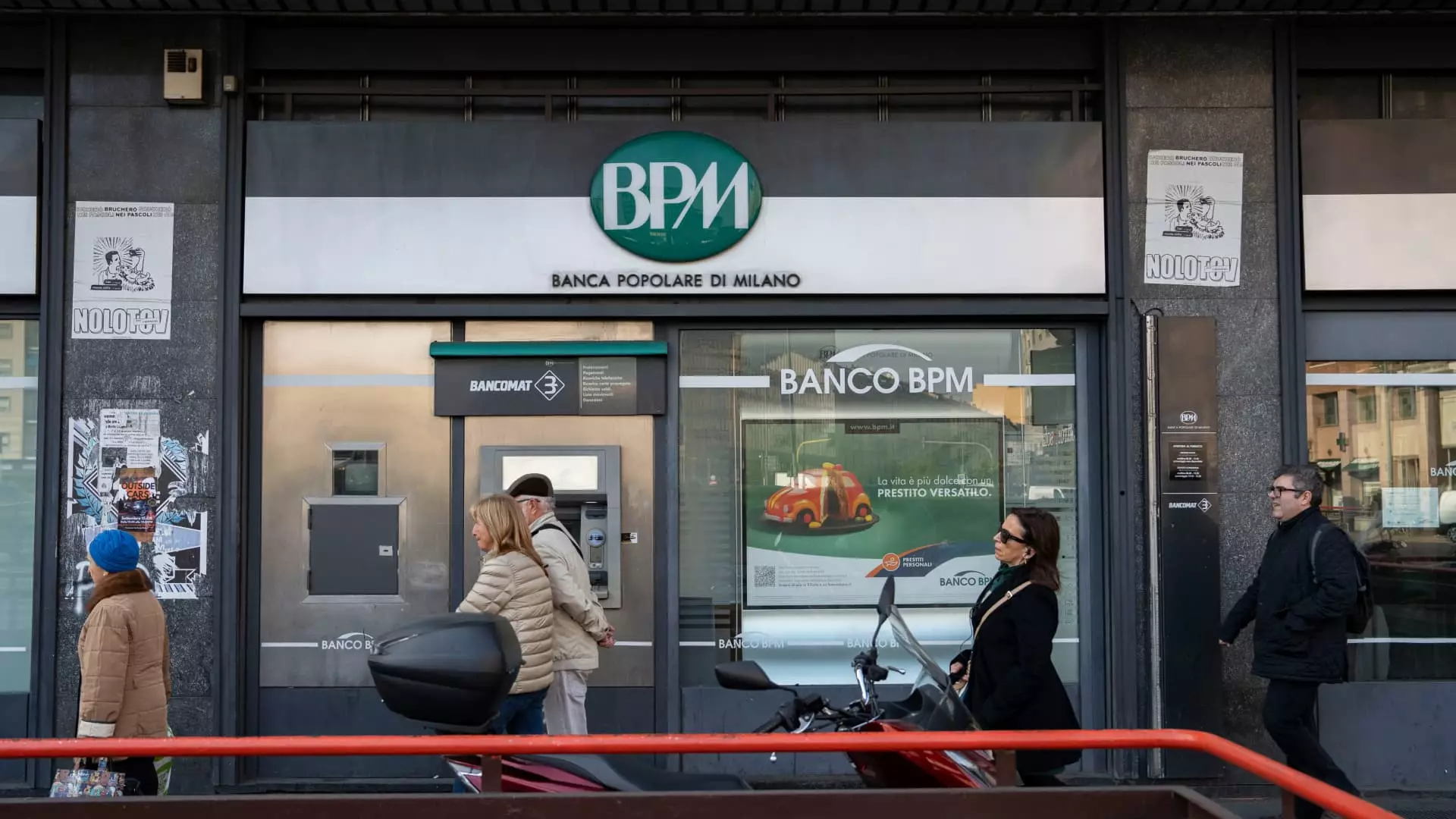Recent developments in the Italian banking sector have spotlighted the complex dynamics between leading institutions, particularly between Banco BPM and UniCredit. On one hand, we have Banco BPM, a bank that prides itself on its operational stability and the potential for growth; on the other, UniCredit, which is actively pursuing expansion and consolidation strategies in an increasingly competitive landscape. The latest offer from UniCredit, amounting to €10 billion ($10.52 billion), has raised eyebrows and prompted a critical examination of its implications for both banks as well as for the broader financial system.
Banco BPM’s board of directors has categorically rejected UniCredit’s overtures, emphasizing that the bid does not adequately reflect its profitability or potential for further value creation. In their statement, they underscored that the takeover proposal is both unexpected and delivered on “unusual” terms, raising questions about UniCredit’s motivations. Moreover, Banco BPM’s leadership expressed significant concern regarding the timeline of this proposed merger, asserting that it could jeopardize the lender’s legal autonomy, which is paramount in maintaining operational integrity.
This resistance signals more than just an unwillingness to accept an unsolicited offer; it reflects deeper issues regarding how mergers and acquisitions can disrupt existing strategies and limit potential growth avenues. This response speaks volumes about Banco BPM’s confidence in its standing and future potential in the Italian market.
The intricacies of the takeover proposal extend beyond financial figures. Banco BPM’s leadership has articulated concerns that UniCredit’s ambitions, particularly regarding foreign acquisitions, could lead to a dilution of their business strategy. Foreshadowing potential complications, they highlighted that an expansive focus on Germany — given Eurozone competitive dynamics — could steer Banco BPM away from more lucrative opportunities within Italy’s most vibrant regions. This illustrates a fundamental clash: UniCredit’s drive for scale versus Banco BPM’s commitment to its venue-focused growth strategy.
The strategic misalignment presents a critical evaluation point: Does UniCredit prioritize the theoretical benefits of consolidation over the truth of operational synergy? The history of Italian banks indicates a pattern where swift mergers often lead to more confusion than coherence, a danger that Banco BPM is evidently keen to avoid.
UniCredit CEO Andrea Orcel’s commentary regarding the need for stronger banks in Europe lays a foundation for broader discussions around the necessity of consolidation for competitive advantage. However, this ambition comes with its own set of risks. Orcel’s priority to orchestrate a Banco BPM acquisition as a precursor to any plans involving Commerzbank, which has faced government scrutiny in Germany, poses the question of whether expanding on multiple fronts is a wise maneuver.
Economy Minister Giancarlo Giorgetti has pointedly remarked that “the safest way to lose a war is engaging on two fronts,” providing a sobering reminder of the potential pitfalls in UniCredit’s expansionist approach. The combination of internal challenges and external pressures encapsulates a high-stakes environment where strategic decisions could either elevate or obliterate market standings.
The ongoing dialogue between Banco BPM and UniCredit does not merely affect the two banks involved; it also extends to stakeholders, including investors, employees, and clients. Investors are likely caught in the crossfire, with share prices reflecting the uncertainty amidst the merger discussions. In the wake of UniCredit’s offer, Banco BPM’s stock experienced a slight downturn, signaling market apprehension.
Furthermore, both banks’ employees face uncertainty regarding job security and operational changes should a merger take place. The outcome of this potential acquisition could reshape job landscapes and influence the overall corporate culture within both institutions. For clients, the implications could affect everything from service offerings to the accessibility of banking functions.
The unfolding drama between Banco BPM and UniCredit represents a microcosm of the larger challenges facing the European banking sector. Stakeholder interests, strategic objectives, and operational challenges intertwine to create a precarious environment for decision-making. As both banks navigate these turbulent waters, the outcome of this confrontation will not just shape their futures but also set significant precedents for the Italian banking landscape in the years to come. The interplay of ambition, caution, and strategic dexterity will ultimately determine whether this saga results in a reinforced banking powerhouse or a cautionary tale of failed consolidation efforts.

